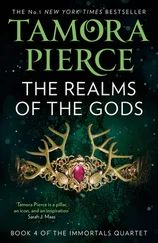Erich Daniken - Miracles of the Gods
Здесь есть возможность читать онлайн «Erich Daniken - Miracles of the Gods» весь текст электронной книги совершенно бесплатно (целиком полную версию без сокращений). В некоторых случаях можно слушать аудио, скачать через торрент в формате fb2 и присутствует краткое содержание. Жанр: Физика, на английском языке. Описание произведения, (предисловие) а так же отзывы посетителей доступны на портале библиотеки ЛибКат.
- Название:Miracles of the Gods
- Автор:
- Жанр:
- Год:неизвестен
- ISBN:нет данных
- Рейтинг книги:4 / 5. Голосов: 1
-
Избранное:Добавить в избранное
- Отзывы:
-
Ваша оценка:
- 80
- 1
- 2
- 3
- 4
- 5
Miracles of the Gods: краткое содержание, описание и аннотация
Предлагаем к чтению аннотацию, описание, краткое содержание или предисловие (зависит от того, что написал сам автор книги «Miracles of the Gods»). Если вы не нашли необходимую информацию о книге — напишите в комментариях, мы постараемся отыскать её.
Miracles of the Gods — читать онлайн бесплатно полную книгу (весь текст) целиком
Ниже представлен текст книги, разбитый по страницам. Система сохранения места последней прочитанной страницы, позволяет с удобством читать онлайн бесплатно книгу «Miracles of the Gods», без необходимости каждый раз заново искать на чём Вы остановились. Поставьте закладку, и сможете в любой момент перейти на страницу, на которой закончили чтение.
Интервал:
Закладка:
'God's word' also shows considerable variations when it comes to Jesus' last words on the cross.
According to Mark (15:34) and Matthew (27:46), he cried in a loud voice: 'My God, My God, why hast thou forsaken me?'
According to Luke. 'he cried: 'Father, into thy hands I commend my spirit.'
According to John (19:30), his words were: 'It is finished: and he bowed his head, and gave up the ghost.'
The four gospel accounts also differ about the women's visits to the tomb of Jesus.
Mark (16:1-8) says that Mary Magdalene. Mary the mother of James and Salome bought spices to anoint Jesus. On the way they were wondering how they would move the stone from the tomb, when they saw that it was already open and that a young man in a long white garment sat inside. He told them not to be afraid, for Jesus whom they sought had risen from the dead. They were to tell the disciples this. But the women fled in a panic, 'neither said they anything to any man; for they were afraid.'
John (20:1-2) describes things differently. According to him, only Mary Magdalene went to the grave early on the first day of the week and found the stone already removed. In a panic she ran to Simon Peter and the other apostles, telling them that they had taken Jesus away to an unknown place.
Luke (24:1-6) only mentions 'women' (not mentioned by name), who went to the open tomb and found it empty. While they stood there sadly, two men in 'shining garments' said to them: 'Why seek ye the living among the dead? He is not here, but is risen.'
Matthew makes the whole scene very dramatic (28:1-9). Mary Magdalene and Mary the mother of James went to the tomb, which was closed. Fortunately an earthquake began at that moment and the angel of the. Lord, his face like lightning and his robe as white as snow, came down from heaven, moved the stone, sat on it and spoke to the women. He showed them the place where Jesus lay and said that he had risen, and that they were to inform the disciples quickly. The fact that they also met Jesus on the way is no longer connected with the visit to the tomb.
Should not the countless collaborators on the Bible at least have taken care to synchronize the central event of the resurrection in the accounts? If, for some incomprehensible reason, the legendary 'original texts' of 'God's word' did not contain a unified description they should have been edited for the good of the simple Bible reader who must now ask for all eternity: what really happened?
The apostles' reaction to the phenomenal events is also most remarkable. They did not believe a word of the story told by the women, among whom were the two Mary's and Joanna. 'And their words seemed to them idle tales, and they believed them not' (Luke 24:11). John (20:9) even affirms: 'For as yet they knew not the scripture, that he must rise from the dead.' This is quite incomprehensible.
Throughout their four books the evangelists noted down Jesus' pronouncements that he would die and rise again, yet at the end they knew nothing about it.
Even without divine inspiration of the ultimate truth the account of Jesus' ascent into heaven is also contradictory.
According to Matthew (28:16-17), Jesus had summoned the disciples to a mountain near Galilee for the appearance. When they saw him, they worshiped him. 'But some doubted'. Still? Matthew has nothing further to say about an ascent into heaven.
Mark (16:19) has only one sentence to cover the important event: 'So then after the Lord had spoken unto them, he was received up into heaven, and sat on the right hand of God.' It was as simple as that.
Luke (24:50-51) makes Jesus himself lead the disciples 'out as far as Bethany'. While he was blessing them, 'he was parted from them, and carried up into heaven.'
John (21) has nothing to say about the ascension into heaven.
The most important events in Jesus' life (as recorded by 'God's word' - a fact I have devoutly acknowledged in this textual comparison) were undoubtedly the resurrection and the ascent into heaven. The evangelists recorded so many unimportant details that one cannot understand why they did not describe the two central events on which the Christian dogma is based in colourful gripping images and genuinely inspired language.
If Jesus had ascended into heaven in full view of everybody, or at least in the circle of his disciples, the news would have spread through the streets of Jerusalem like a forest fire on the very same day, for the people had taken a lively interest in the trial and crucifixion. But not a single Roman or Jewish historian noted down a single word about these earth-shaking events! The evangelists show only the most rudimentary knowledge of them and they were not eyewitnesses. It is a crux interpretum.
I am one of many hundreds of millions of 'Christians', who are dictated to from the cradle and pay taxes for the privilege, but cannot believe in a dictatorial religion. I am not an atheist. I admire the magnificent drama which was written around the central figure of Jesus of Nazareth, I admire the products of Christian culture in painting, sculpture and music. I recognize most of the laws and rules governing human conduct in the codex of the Christian faith (as they are in essence peculiar to all religions, myths and legends).
But I deny the claim of the church into which I was born to be the only one offering salvation, because I - to name only two examples - consider the dogmas and tenets of Buddha and Mohammed to be of no less value.
Millions of devout Christians know nothing or too little of the background of the Bible. Consequently, they accept it as the 'Word of God' from generation to generation: they take Jesus for the original preacher of his doctrine. But it has been proved that he adapted essential parts of it from the Essenes by the Dead Sea. The fact that the Christian doctrines and customs are mostly borrowed from old religions is shown by documentation put at my disposal by Dr. Robert Kehl [27]. From it I take the following details, which are but a fraction of the material available.
The Bible does not contain a single religious or moral idea which was not already contained in some form in the holy scriptures of earlier or contemporary religions. The immediate soil - not to say armoury and arsenal - for the present-day 'Christian', i.e. Pauline religious, communal and cult life was in particular the Hellenistic mystery cults (for their part largely taken over from the Egyptian and oriental cults). Practically everything that forms present-day Pauline Christianity is to be found in the cults of Attis. Dionysus, Mithras and Isis (a). (The letters (a) to (i) are referred to separately in the Bibliography.)
The central figure of the individual mystery cults was always a saviour corresponding to the Pauline Christos, a 'Son of God', who was described as 'the Lord'. The suffering and death of the 'Son of God'
plays a decisive role in these cults, and there is also mention of crucified gods. A god's going down into hell ('... descended into hell') was a widespread idea, just as the ascent into heaven formed part of the salvation story in all mystery cults. The Trinity was known too, as it was in ancient Egypt. The sick were healed in the names of Mithras and Dionysus, the dead woken, the sea calmed, water turned into wine etc. There was also the festival of Easter (celebration of the resurrection), in which the resurrection of the god concerned was conceived of in exactly the same way as in later Christianity
(resurrection on the third day, empty tomb, stone rolled away). The doctrine of salvation, which is considered as peculiar to the Christian religion, is found in all its details in the mystery religions.
Even the basic Christian dogma of original sin was not really new (Mithras). Baptism with fasting and penitential exercises beforehand was known in the Hellenistic mystery religions. The holy supper, also called 'Table of the Lord', 'Meal of the blessed" or 'Meal of the saints', had a great deal in common with the (later) Christian Last Supper. But it is of special significance that according to the mystery religions, too, this meal represented eating the body and drinking the blood of their god (communion).
Читать дальшеИнтервал:
Закладка:
Похожие книги на «Miracles of the Gods»
Представляем Вашему вниманию похожие книги на «Miracles of the Gods» списком для выбора. Мы отобрали схожую по названию и смыслу литературу в надежде предоставить читателям больше вариантов отыскать новые, интересные, ещё непрочитанные произведения.
Обсуждение, отзывы о книге «Miracles of the Gods» и просто собственные мнения читателей. Оставьте ваши комментарии, напишите, что Вы думаете о произведении, его смысле или главных героях. Укажите что конкретно понравилось, а что нет, и почему Вы так считаете.











